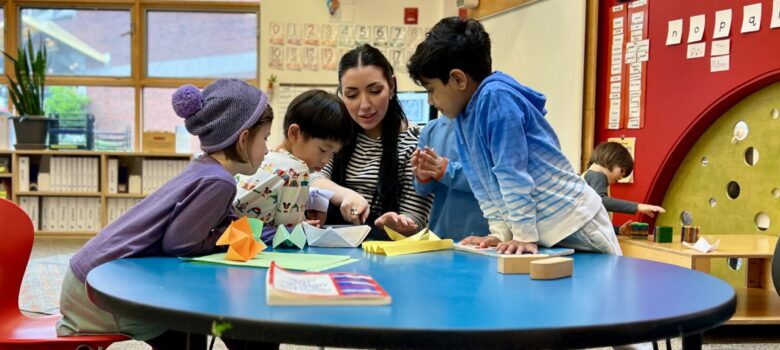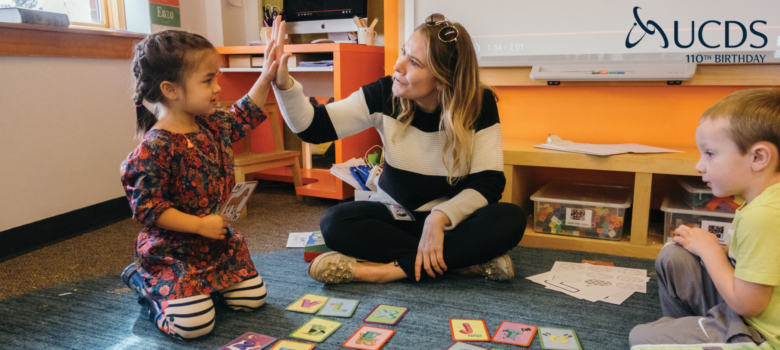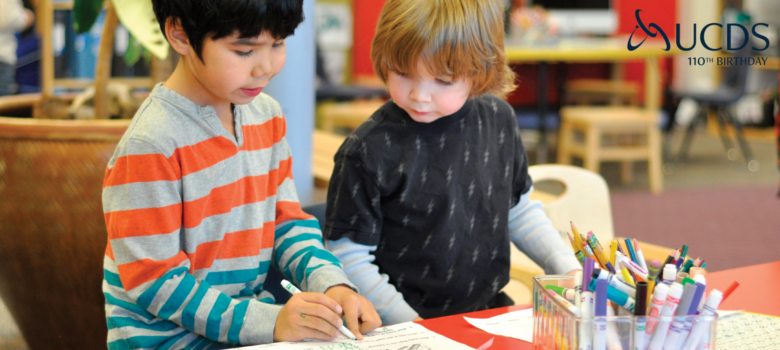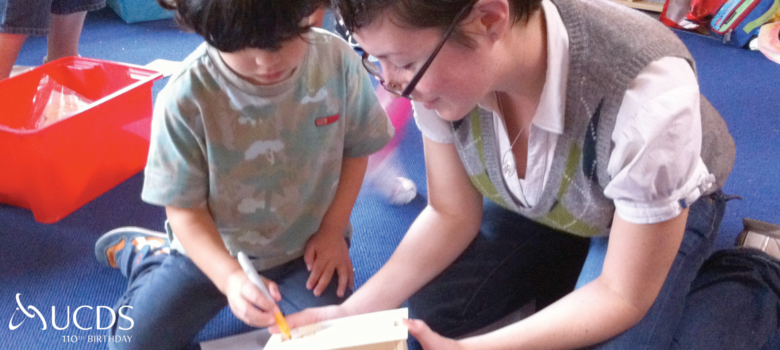UCDS’s very own Sarah Donahue, a 5th grade teacher, discusses the importance of building knowledge and skills over one’s lifetime with her students.
– Ed.
————————–
One of my favorite conversations of the spring was born out of coincidence. One of the Early Elementary teachers was passing through my 5th grade classroom when she noticed the remnants of the math vitamin my students had been working on scattered around the room.
“Whoa!” She noted. “We’re doing the exact same thing!”
She was right. Both the Pre-Kindergarten/Kindergarten and 5th grade were working on surveys and had given our students the same prompt: develop a question you are interested in and then gather responses. While the goals for the Early Elementary were to build skills such as recording responses and sharing findings, the 5th graders were studying the measures of central tendency, exploring ways to identify relevant data, and displaying data in a variety of forms.
I was interested to hear what my students thought about this, so I gathered them together later that afternoon. “Guess what I learned? The Early Elementary is doing the same Math Vitamin as us.”
A sea of puzzled faces slowly gave way to laughter and a chorus of “Wait, what do you mean?” filled the room.
I explained that the prompt for both levels was the same problem at heart. Curious to see where they would go with this information, I opened the door. “How could this possibly happen? How could you and four year olds really be working on the same math problem?”
“Well, their data set is probably smaller,” one student offered.
Another student chimed in, “And they probably won’t be doing the same analysis as us either. Like, they aren’t finding the mean, median or mode yet.”
A third voice added, “Yeah, but it’s still important that they start learning how to take surveys and make up questions, because you have to learn that before you get to what we’re doing. If they start doing it now, they’ll get a lot of practice.”
I wondered aloud, “So, do you think you’ll be done with surveys after this year?”
One boy shook his head and laughed. “Of course not. We’ll be able to do so much more in 8th grade or college with the same prompt. I don’t even know what we’ll be able to do, but certainly more than we’re doing now.”
“Probably something even more awesome!” another voice called out.
This conversation highlights one of my favorite mindsets that kids learn at UCDS. Students here are never “done” with work. There is always a way to dig deeper into material. My 5th graders had no problem working on the same prompt as four year olds because they know that concepts are complex and that understanding deepens and evolves over time. They also don’t see themselves as all-knowing experts yet, but as learners continuously gaining more skills and building understanding. They believe this because they have seen countless pieces of evidence pointing them to this conclusion throughout their years at UCDS. It’s a value of our community and in the air of the culture they breathe. They’ve had so many shades and versions of this conversation that they’ve internalized the meaning and can now speak to it with confidence and specificity. It’s such a healthy outlook on learning and a compassionate way to understand themselves as learners. I hope it’s a perspective they keep for a long time.




